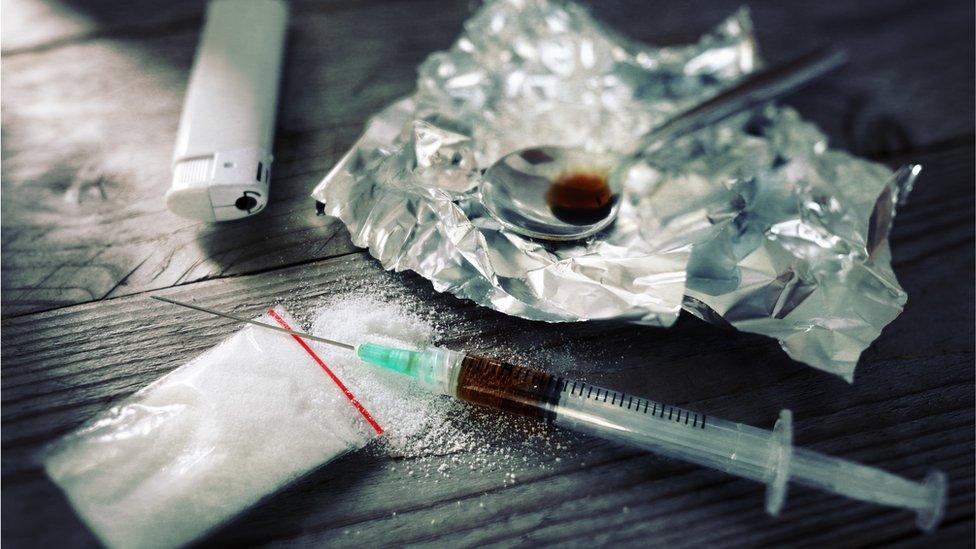Glasgow city leader asks UK government to reconsider 'fix rooms'
- Published
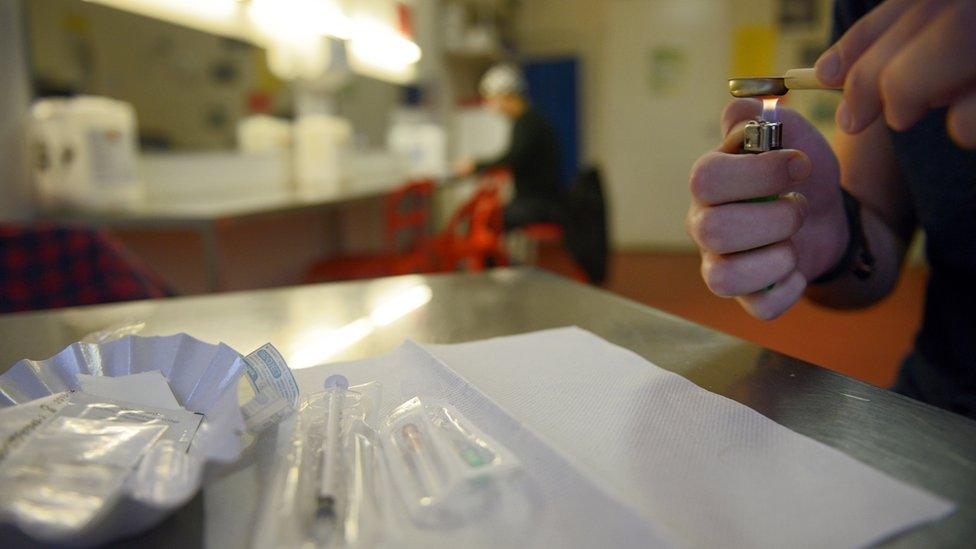
Drug consumption rooms would allow addicts to take drugs in a controlled and safe environment
Leading Glasgow councillors have asked the UK government to reconsider the use of "fix rooms"
Council leader Susan Aitken and city health convener Mhairi Hunter, have written to the Home Office following its refusal of the policy.
A "fix room" was planned for Glasgow because of an increase in street injecting in the city, and a rise in HIV infections among users.
But the Home Office, which controls drug legislation, said it was illegal.
It said a safe heroin injecting centre would promote the breaking of numerous laws and it expected police to enforce the law.
Earlier this month figures were released showing Scotland has the highest drug-related death rate in Europe.
About 30% of Scottish drugs deaths in 2017 occurred in Glasgow.
A safer drugs consumption facility (SDCF) would help tackle the problem that killed more than 200 in the city last year, its proponents believe.
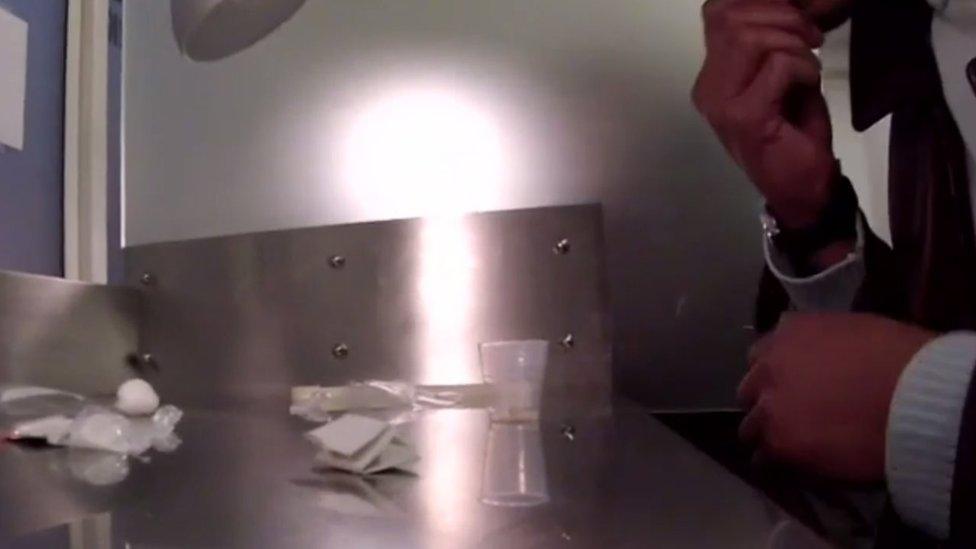
The council wants to provide a facility in Glasgow for addicts
The letter to Victoria Atkins MP, under secretary of state for crime, stated: "We note that other countries have successfully introduced drug consumption rooms (DCRs) within strict legislative frameworks similar to those that operate in the UK."
The councillors said the chances of people travelling to Glasgow for the facility were unlikely due to the specific low income, homeless demographic that would use it.
The UK government had referred to addicts travelling from Sweden to Jutland, Denmark, to use a similar clinic.
'Supportive of the plan'
No change to the current laws concerning supply of heroin is being sought by the council.
Special training and strict protocols would be in place for staff working in the centre.
Given the rise in drug deaths, all parties in the council are supportive of the plan.
In 2017, 934 drug-related deaths were recorded in Scotland, an 8% increase on 2016.
The figure has increased every year on average since 1997 where just 200 deaths were recorded.
In Glasgow alone, 30% of the total drug deaths were recorded, 280.
The overwhelming majority are related to heroin, according to the National Records of Scotland.
Ms Hunter and Ms Aitken's letter added: "In terms of day to day ethical dilemmas, clinicians employed in such a service will have considerable experience of working with drug users and will operate within their existing codes of professional practice.
"We have around 30 years of experience within Glasgow of running needle exchanges, opiate replacement therapy and outreach services to drug users, and therefore a significant body of existing knowledge, experience and transferrable skills."
At a recent council meeting, Ms Hunter said: "(The letter) from the Home Office was actually a lot more positive than it might have first appeared.
"Because, although the overall remains no, I think the first time we've seen the Home Office acknowledge the benefits of the facility."
•Story by local democracy reporter Alan Ferguson
- Published3 July 2018
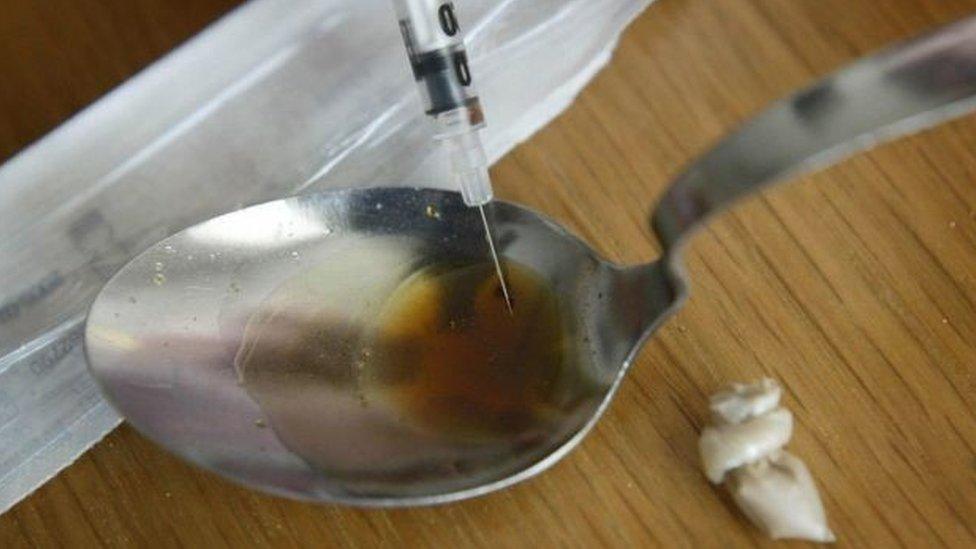
- Published12 December 2017
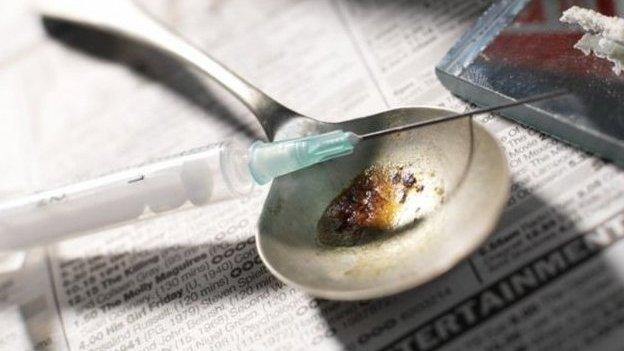
- Published19 April 2018
